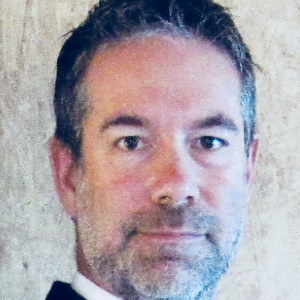
Business economist (BSc 1990), Philippe Anhorn first worked for the International Red Cross, then in various companies before joining the public sector in Switzerland. With a Master in Public Administration (MPA 2002), he specialised in the field of public health (CAS 2017). He is the author of several scientific articles on health systems analysis and is active in various international associations.
In September 2021, he defended his Executive Doctorate in Business Administration (Executive DBA) on the topic of ‘Healthcare Partnerships in the Regional Health System, Instructions for Use’, supervised by Professor Véronique Zardet (University Lyon 3). His work is a plea for patient partnership, not only in healthcare, but also in the organisation of health services, public policies, teaching and research in this field.
Thesis Direction
Pr Véronique Zardet
Thesis Title
The care partnership: an ecosystemic evidence / the case of the Réseau Santé Région Lausanne (RSRL)
Abstract
Why and how can the patient partnership be implemented within the regional health system? More and more, patients are being given a voice. This is good news! And more and more elderly patients, chronically ill patients and their relatives are telling us: “I don’t want to go through the same tests again and again, nor do I want to keep telling new people about my healthcare journey! “I would like my mother’s doctor to have access to all her treatments and to be able to coordinate them”. “I have written an advance care plan, but how can I be sure that it will be respected if I lose my judgement or if I am admitted to the emergency room?” So what? How much longer can we answer: “Sorry, but that’s not going to be possible”? “Each care provider operates with its own rules, processes, funding and fees; impossible to coordinate further”? “We have been working for 25 years on the electronic patient file but it still doesn’t work…”? In Switzerland, one of the richest countries in the world, health care is generally of excellent quality. But its coordination remains very uncertain. In the name of freedom of choice, the political majority defends increased individual responsibility rather than any additional state regulation, and strives to keep the boundaries between each provider in the health system tightly sealed, ensuring above all that each of them is profitable! These people do not see the Swiss health system as a common good that must be tailored to the needs of patients ant population, but as a collection of cash drawers. The regional health system, like a business ecosystem, must however take into account the needs of its “clients”. We conducted a research-intervention on the introduction of a clinical and societal innovation within the Réseau Santé Région Lausanne, and carried out two surveys among regional actors in order to find out their positions and expectations regarding the patient partnership. Our results provide political authorities, managers of health institutions – public or private – as well as all health professionals with arguments and recommendations for including patient partnership in their respective strategies. Or better still: to develop a common strategy in this area. Not forgetting to involve patients and their representatives!

